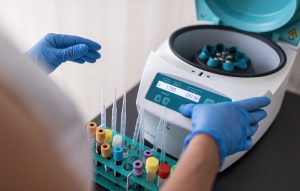COVID-19 has brought about many radical changes, including research that has the potential to shift the way that future diseases are diagnosed and treated. The University of Oxford Suzhou Centre of Advanced Research (OSCAR) in China and Hong Kong-based COVID test manufacturing company, Prenetics, have teamed up to further develop the technology used for the Oxford rapid COVID test in hopes of using it in future applications for diagnosing other infectious diseases around the world.
The OxLAMP COVID-19 test has, impressively, detected the virus with 96% sensitivity and can be administered outside of a traditional lab setting, taking only 20 minutes to generate results. As of now, the test has been approved for use around the U.K. and by the European Union and is currently undergoing the process of emergency use authorization by the FDA in the United States.
This new partnership to expand the testing capabilities of OxLAMP will include millions of dollars in funding and a three-year research partnership. Along with technology development, this partnership comes with the purpose of creating access to the nasal-swab test across low- and middle-class communities and implementing it as a new standard of public safety. The technology is already being used to screen passengers at London and Hong Kong international airports.
In terms of what diseases the test could be covering in the future, an Oxford team will be assessing which diseases are most prevalent in Europe and the western hemisphere, while the OSCAR team in China will be focusing on eastern diseases of concern. Once an effective list is established, the research team will begin prototyping immersive disease panel tests. Both Prenetics and Oxford researchers acknowledge that long-term scientific study into molecular diagnostic testing will be required to achieve success in their pursuits.
“When we think about the future, especially with the pandemic, it’s very apparent that testing is here to stay with us for years to come," said Founding Director of OSCAR and a chemical engineering professor at Oxford, Zhanfeng Cui. “Our goal is to decentralize laboratory testing with rapid, highly accurate molecular testing, not just for COVID-19 but for all infectious diseases.”























